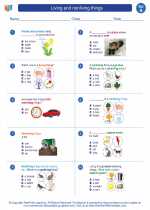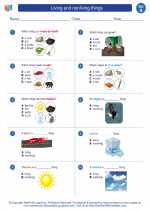Lipids
Lipids are a diverse group of organic molecules that are insoluble in water. They are an essential component of living cells and play a variety of roles in the body.
Types of Lipids
There are several types of lipids, including:
- Triglycerides: Composed of glycerol and three fatty acids, triglycerides are the most common type of lipid found in the body. They serve as a major form of energy storage.
- Phospholipids: These lipids are a major component of cell membranes and have a hydrophilic (water-attracting) head and two hydrophobic (water-repelling) tails.
- Steroids: Steroids are lipids with a unique structure, including cholesterol and hormones like estrogen and testosterone.
Functions of Lipids
Lipids have several important functions in the body, including:
- Energy Storage: Triglycerides store energy that can be used by the body when needed.
- Insulation: Adipose tissue, which is rich in lipids, helps insulate the body and regulate temperature.
- Cell Membrane Structure: Phospholipids are a key component of cell membranes, providing structure and regulating what enters and exits the cell.
- Hormone Production: Lipids serve as precursors for the production of steroid hormones, which regulate various bodily functions.
Study Guide
When studying lipids, make sure to focus on the following key points:
- The different types of lipids and their structures
- The functions of lipids in the body
- The role of lipids in energy storage and metabolism
- The importance of lipids in cell membrane structure and function
- The significance of lipids in hormone production and regulation
Understanding the structure and functions of lipids is essential for grasping their crucial role in maintaining overall health and well-being.
.◂Science Worksheets and Study Guides First Grade. Living and nonliving things
Study Guide Living and nonliving things
Living and nonliving things  Activity Lesson
Activity Lesson Living & Non-living Things
Living & Non-living Things  Worksheet/Answer key
Worksheet/Answer key Living and nonliving things
Living and nonliving things  Worksheet/Answer key
Worksheet/Answer key Living and nonliving things
Living and nonliving things  Worksheet/Answer key
Worksheet/Answer key Living and nonliving things
Living and nonliving things  Worksheet/Answer key
Worksheet/Answer key Living and nonliving things
Living and nonliving things  Vocabulary/Answer key
Vocabulary/Answer key Living and nonliving things
Living and nonliving things 

 Activity Lesson
Activity Lesson
 Worksheet/Answer key
Worksheet/Answer key
 Worksheet/Answer key
Worksheet/Answer key
 Worksheet/Answer key
Worksheet/Answer key
 Worksheet/Answer key
Worksheet/Answer key
 Vocabulary/Answer key
Vocabulary/Answer key

The resources above cover the following skills:
Concepts of Life Science (SC1, SC2, SC3)
The student demonstrates an understanding that all organisms are linked to each other and their physical environments through the transfer and transformation of matter and energy by identifying and sorting examples of living and non-living things in the local environment. (L)